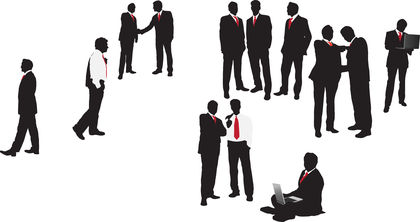ORGANIZATIONAL BEHAVIOR

Organizational behavior is an academic discipline concerned with describing, understanding, predicting, and controlling human behavior in an organizational environment. Organizational behavior has evolved from early classical management theories into a complex school of thought—and it continues to change in response to the dynamic environment and proliferating corporate cultures in which today's businesses operate. "The task of getting organizations to function effectively is a difficult one," wrote David A. Nadler and Michael L. Tushman in Hackman, Lawler, and Porter's Perspectives on Behaviors in Organizations . "Understanding one individual's behavior is a challenging problem in and of itself. A group, made up of different individuals and multiple relationships among those individuals, is even more complex…. In the fact of this overwhelming complexity, organizational behavior must be managed. Ultimately the work of organizations gets done through the behavior of people, individually or collectively, on their own or in collaboration with technology. Thus, central to the management task is the management of organizational behavior. To do this, there must be the capacity to understand the patterns of behavior at individual, group, and organization levels, to predict what behavior responses will be elicited by different managerial actions, and finally to use understanding and prediction to achieve control. "
THE BEHAVIORAL SCIENCES
Organizational behavior scientists study four primary areas of behavioral science: individual behavior, group behavior, organizational structure, and organizational processes. They investigate many facets of these areas like personality and perception, attitudes and job satisfaction, group dynamics, politics and the role of leadership in the organization, job design, the impact of stress on work, decision-making processes, the communications chain, and company cultures and climates. They use a variety of techniques and approaches to evaluate each of these elements and its impact on individuals, groups, and organizational efficiency and effectiveness. "The behavior sciences," stated Gibson, Ivancevich, and Donnelly in Organizations: Behavior, Structure, Processes, "have provided the basic framework and principles for the field of organizational behavior. Each behavioral science discipline provides a slightly different focus, analytical framework, and theme for helping managers answer questions about themselves, nonmanagers, and environmental forces."
In regard to individuals and groups, researchers try to determine why people behave the way they do.
They have developed a variety of models designed to explain individuals' behavior. They investigate the factors that influence personality development, including genetic, situational, environmental, cultural, and social factors. Researchers also examine various personality types and their impact on business and other organizations. One of the primary tools utilized by organizational behavior researchers in these and other areas of study is the job satisfaction study. These tools are used not only to measure job satisfaction in such tangible areas as pay, benefits, promotional opportunities, and working conditions, but also to gauge how individual and group behavior patterns influence corporate culture, both positively and negatively.
ORGANIZATIONAL BEHAVIOR AND CORPORATE CULTURE
The terms "corporate culture" and "organizational behavior" are sometimes used interchangeably, but in reality, there are differences between the two. Corporate culture encompasses the shared values, attitudes, standards, and beliefs and other characteristics that define an organization's operating philosophy. Organizational behavior, meanwhile, can be under-stood in some ways as the academic study of corporate culture and its various elements, as well as other important components of behavior such as organization structure and organization processes. Organizational behavior, said Gibson, Ivancevich, and Donnelly, is "the field of study that draws on theory, methods, and principles from various disciplines to learn about individual perceptions, values, learning capacities, and actions while working in groups and within the total organization; analyzing the external environment's effect on the organization and its human resources, missions, objectives, and strategies.…Effective managers know what to look for in terms of structure, process, and culture and how to under-stand what they find. Therefore, managers must develop diagnostic skills; they must be trained to identify conditions symptomatic of a problem requiring further attention. Problem indicators include declining profits, declining quantity or quality of work, increases in absenteeism or tardiness, and negative employee attitudes. Each of these problems is an issue of organizational behavior."
FURTHER READING:
Connors, Roger, and Tom Smith. "Benchmarking Cultural Transition." Journal of Business Strategy. May 2000.
Egan, Gerard. "Cultivate Your Culture." Management Today. April 1994.
Gibson, James L., John M. Ivancevich, and James H. Donnelly Jr. Organizations: Behavior, Structure, Processes. 8th ed. Boston: Richard D. Irwin, 1994.
Gordon, George G. "Industry Determinants of Organizational Culture." Academy of Management Review. April 1991.
Hodgetts, Richard M. Organizational Behavior: Theory and Practice. New York: Macmillan Publishing Company, 1991.
Nijhof, Andre H.J., and Marius M. Rietdijk. "An ABC Analysis of Ethical Organizational Behavior." Journal of Business Ethics. May 15, 1999.
Phegan, Barry. Developing Your Company Culture: The Joy of Leadership. Context Press, 1996.
Comment about this article, ask questions, or add new information about this topic: